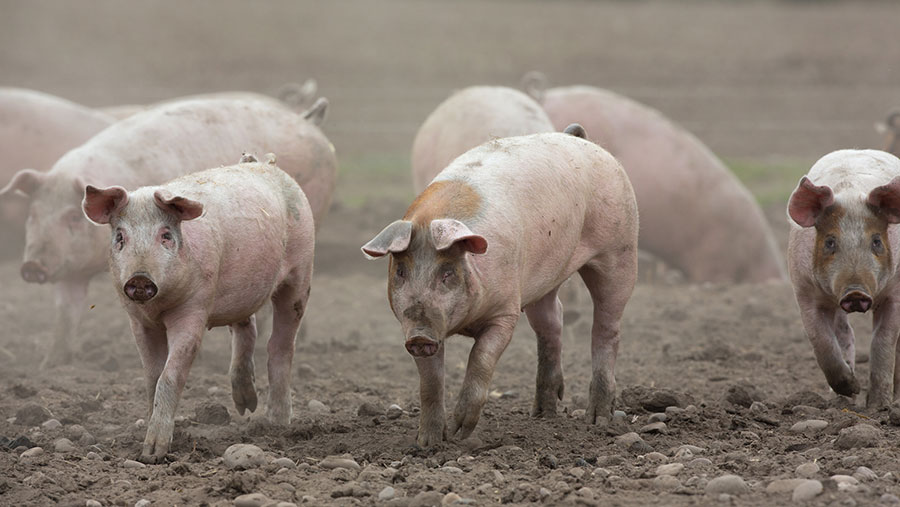African Swine Fever risk level in UK raised after new European outbreaks
 © Tim Scrivener
© Tim Scrivener The government has raised the risk status of African Swine Fever (ASF) entering the UK after the latest outbreak in eastern Europe saw 180,000 pigs culled.
Almost 750 confirmed cases of ASF have been recorded in nine European countries in the past two months.
The Animal Plant and Health Agency (APHA) assessment said the rapid increase in cases meant the risk status of the disease hitting the UK should be raised from low to medium.
It said the heightened risk was due to the UK’s continuing import of frozen pigmeat from the countries affected.
“We have reassessed the risk given the increase in ASF outbreaks in commercial pigs in the past two weeks and the continued import of frozen pork meat from affected countries,” the APHA said.
See also: 5 steps to reduce antibiotic use in your herd
“On a temporary basis, the risk is increased to medium for the entry of contaminated or infected products into the UK both over the past month and looking forward. This risk level will be reassessed every two weeks.”
Disease latest
- 744 cases recorded in July and August
- Romania 591 (42 in the first week of September)
- Poland 63
- Others 90 (Czech Republic Latvia, Russia, Ukraine, Moldova)
- Disease hit Bulgaria for first time on 31 August
- Four large commercial farms in Romania saw 140,000 pigs culled
- Control points established around affected regions
The APHA added that consignments of pigmeat continued to arrive from Romania, which had culled more than 180,000 pigs in recent weeks.
It said that that the EU Trade Notification System, TRACES, showed six consignments of frozen pigmeat from Romania were sold to the UK in August.
Although Romanian origin meat represents less than 0.5% of the total pigmeat imported to the UK from the EU, it still amounted to several thousand tonnes each year, the agency said.
However, it added: “The risk of exposure to the pig population in the UK is still dependent on the level of biosecurity on pig premises and is still considered to be “low”, although the situation is being kept under review.”
Advice for minimising risk
The National Pig Association has called for pig producers to be vigilant and to ensure biosecurity measures are watertight.
It has repeated APHA advice, which includes:
- All pig keepers and the public must ensure pigs are not fed catering waste, kitchen scraps or pork products
- Feeding of meat products, including swill, kitchen scraps and catering waste, to wild boar or feral pigs is also illegal
- All pig keepers should ensure that visitors have not had recent contact with affected regions
- Anybody returning from an affected EU member state should avoid contact with domestic pigs, whether in commercial holdings or smallholdings, areas with feral pigs or wild boar, until they are confident they have no contaminated clothing, footwear or equipment
NPA chief executive Zoe Davies added that pig health was fundamentally important to the sector.
“A notifiable disease outbreak would not only needlessly result in the loss of many pigs and annihilate our burgeoning export market, but would significantly impact on countless families, their staff, local businesses and tourism for months,” she said.
“Feeding illegal food waste, however harmless it might seem at the time, is just not worth the risk.”
Defra has produced an ASF warning poster, which can be downloaded (in PDF format).
More on African Swine Fever
Get the latest news about ASF and what you can do to prevent the virus entering your farm with the Pig Progress African Swine Fever information hub.

